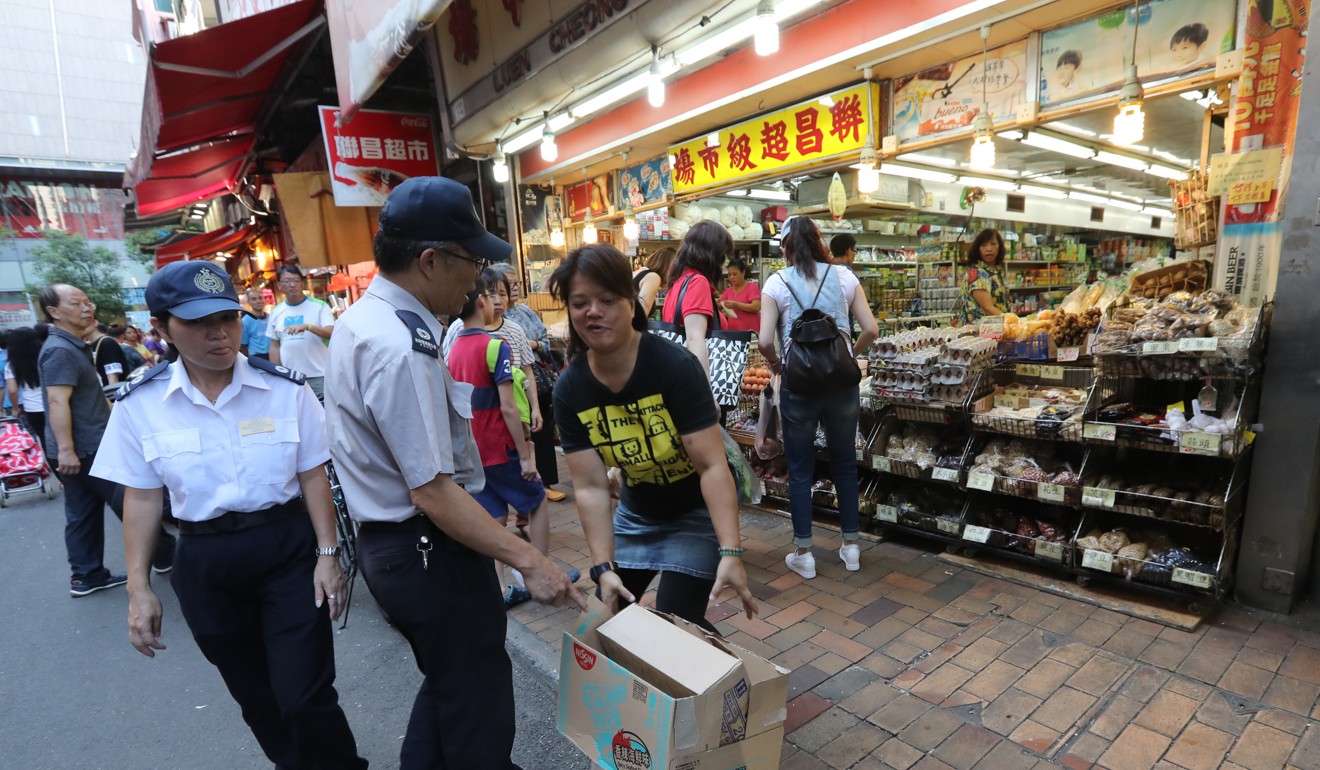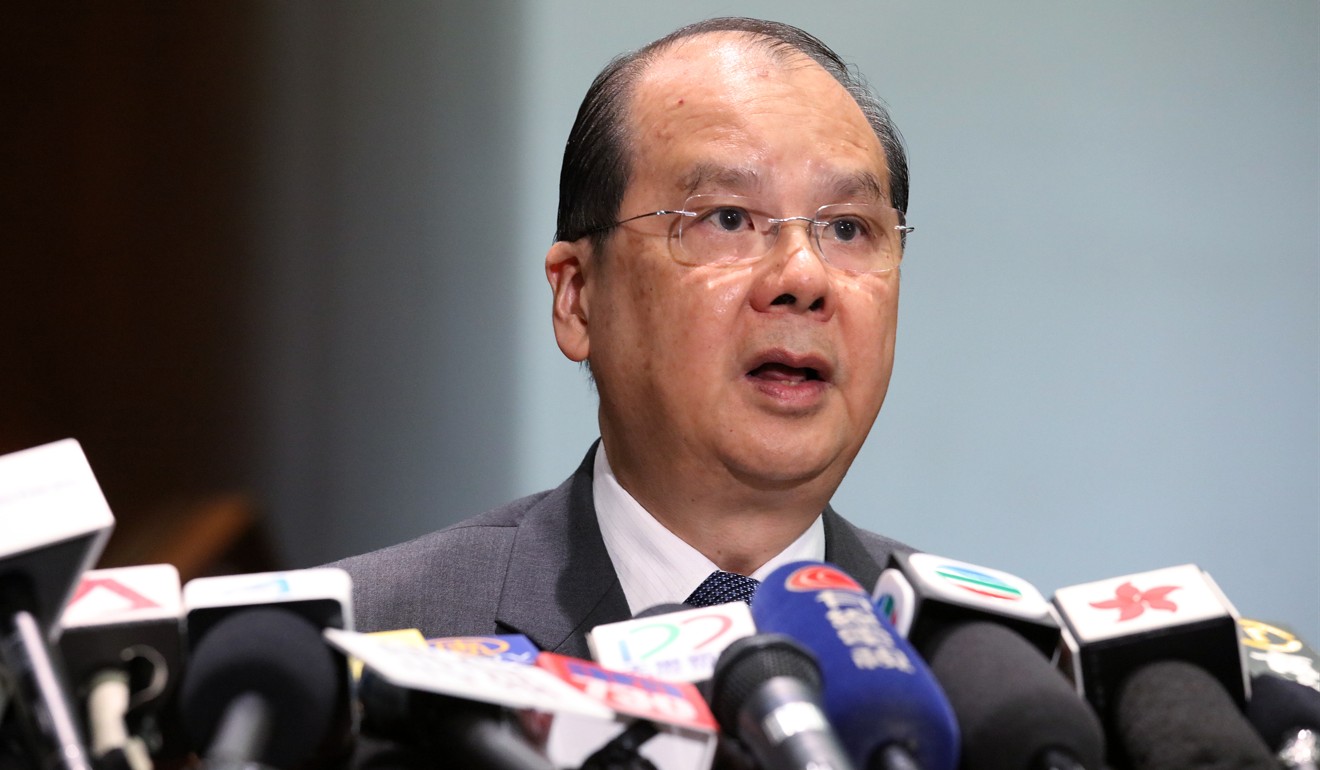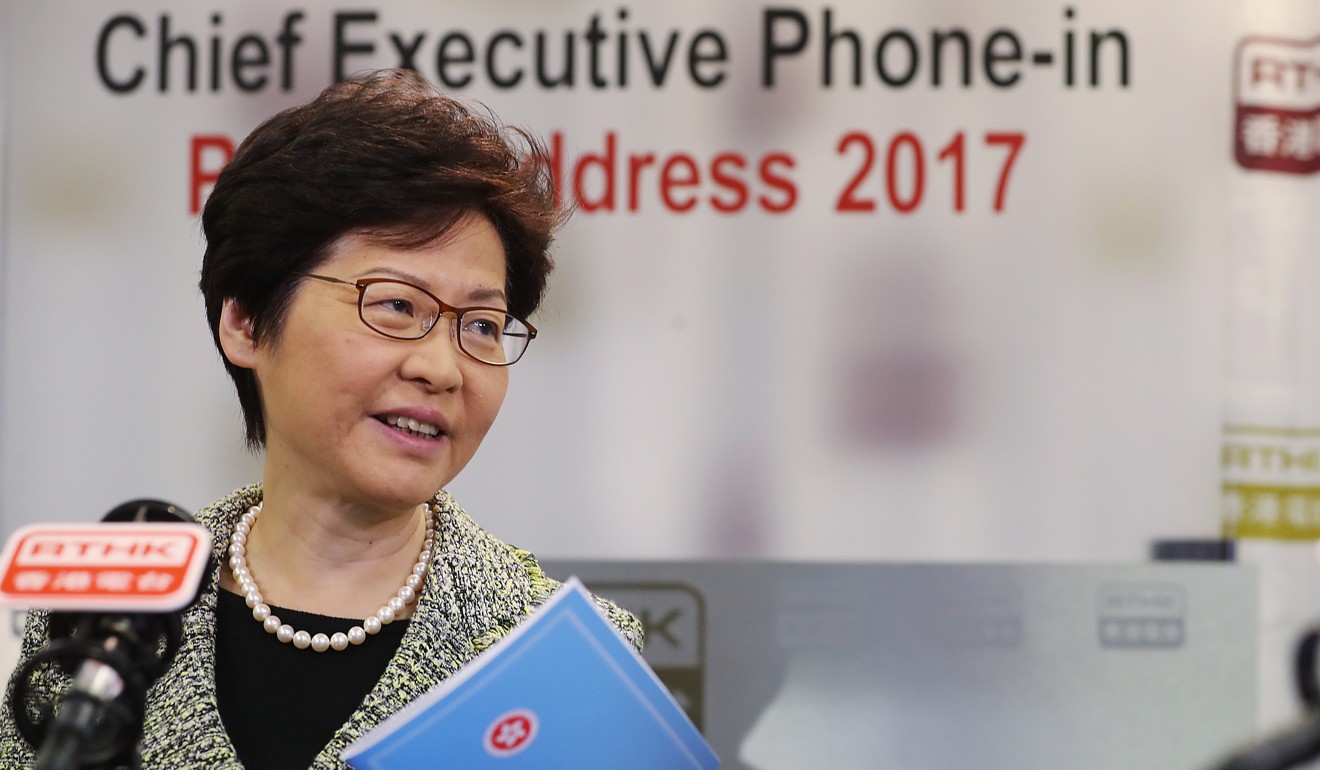
Proposed headcount increase in Hong Kong’s civil service is just drop in the ocean, unions say
City’s leader has put forward 250 new policy initiatives but failed to provide manpower to match, argue union leaders, with staffing levels lower than in 2000
Hong Kong’s civil service unions have said a promised headcount increase of 5,400 workers will be far from adequate to manage their workload.
Union leaders took aim at the pledge by the city’s leader, Carrie Lam Cheng Yuet-ngor, by pointing out that the department that oversees food and environmental hygiene had seen its staff size shrink by about a third since 2000.
They likened the proposed 3 per cent expansion to “throwing a drop of water into the ocean”.
Staffing levels at many departments had yet to return to levels seen at the turn of the century after an ambitious downsizing exercise during the reign of former chief executive Tung Chee-hwa, unions said.
Tung, who led the city from 1997 to 2005, pressed ahead with a series of reforms to enhance productivity. Coupled with a recruitment freeze that followed, the civil service was eventually reduced from around 198,000 people in 2000 to about 161,000 in 2007.

Despite new policy initiatives, the government has limited the expansion of the service to between 1 per cent and 1.5 per cent a year since 2007. But that limit was relaxed last year and the service was allowed a 2 per cent expansion for the 2017-18 financial year.
By the end of June this year, the number of civil servants stood at 175,653, with the police force accounting for the biggest proportion, at 19.8 per cent. Fire services took up 6.1 per cent and food and environmental hygiene made up 5.9 per cent.
Hong Kong’s inefficient civil service has led to divisions in society
The Food and Environmental Hygiene Department saw its workforce shrink from about 16,900 in 2000 to about 11,000 in 2007 and it has remained more or less unchanged since. At present, the department has about 11,200 workers.
The Water Supplies Department has also seen its headcount fall, from about 6,200 in 2000 to about 4,500 in 2007 – a level the department has kept unchanged since.
In her maiden policy address on Wednesday, Lam said she would expand the civil service by 3 per cent by March 2019 to help ease the workload of her 175,000 staff in the wake of 251 new initiatives she announced in the policy blueprint.
That increase will be on top of a 2 per cent rise the government announced last year which will first take the number of staff to 179,000 by March next year.

That translates into about 5,400 more people joining the government and is the highest year-on-year increase in the past two decades.
Lam did not say which departments would get the most additional manpower.
A government source said departments and bureaus would apply for the manpower increases they needed and a committee chaired by Chief Secretary Matthew Cheung Kin-chung would decide how the extra resources should be allocated. Details of the decisions would be announced in the upcoming budget next year.
Hong Kong leader Carrie Lam pledges to set up civil service training academy after visiting facility in Singapore
Civil Service Bureau officials were expected to explain more at Monday’s meeting of the Legislative Council panel on public service.
But civil service unions remained unhappy.
“Five thousand-plus may sound a big number for the general public. But it is far from enough to make up for the loss of headcount,” said Leung Chau-ting, chief executive officer of the Hong Kong Federation of Civil Service Unions. “And bear in mind, Carrie Lam has put forward 251 new initiatives in her policy address this year alone.”

Leung criticised Lam for having failed to consult his federation before coming up with the 3 per cent rise.
Li Kwai-yin, vice-president of the Chinese Civil Servants Association, echoed that view and said hawker control work by the Food and Environmental Hygiene Department had been seriously hit because of manpower shortages.
“Apart from hiring more people, the government should also review the pay of some of the posts to attract new joiners,” Li said.
Carrie Lam calls on civil servants to ‘work in unison’, promising new governing style
Raymond Mak Ka-chun, executive director of the Hong Kong Academy of Politics and Public Policy, a training organisation under the centrist political group Path of Democracy, agreed there was a need to hire more civil servants.
But he warned against any expansion of bureaucracy, saying: “More manpower may not necessarily mean higher efficiency.”
He said government departments should first show the public they had improved efficiency before investing significant amounts of money in strengthening the civil service workforce.

